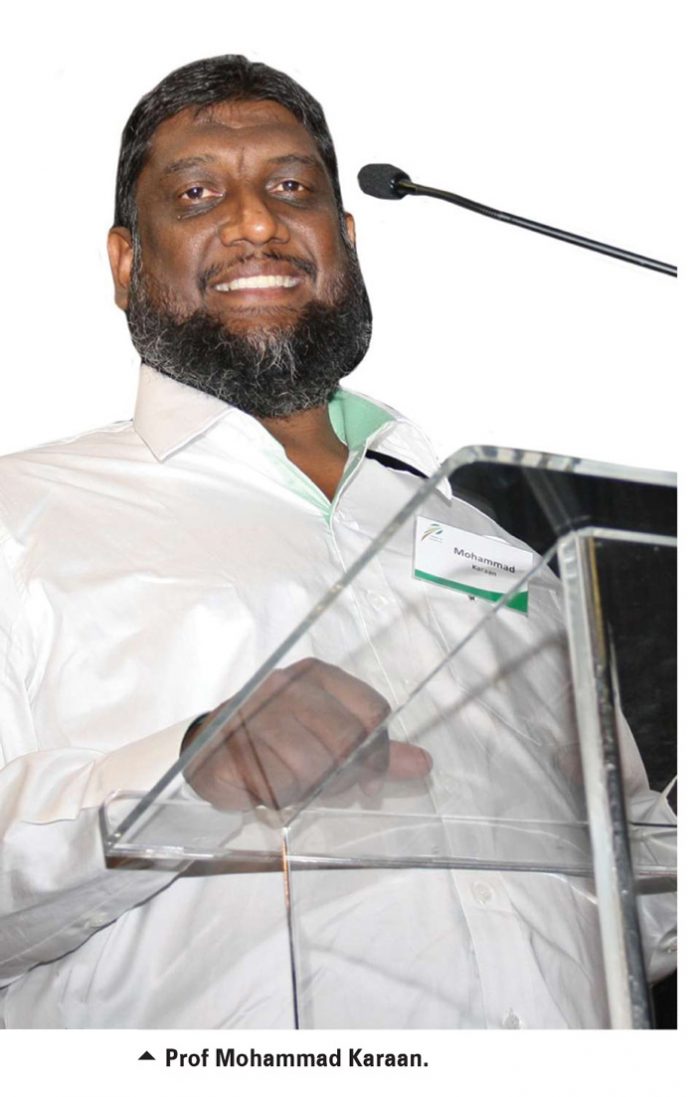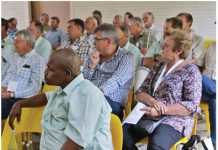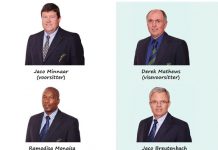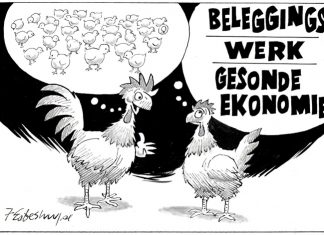April 2018
JENNY MATHEWS, SA Graan/Grain contributor
Prof Mohammad Karaan was to address Congress about ‘Policy environment for future sustainable commercial and developing grain production’ – but he said much, much more. His quiet presence held his audience in the palm of his hand as he started out, ‘Maar ek is ‘n bietjie omgekrap vandag!’
He continued straight shooting: ‘If I were a white farmer today, dan het ek gevoel ek wil my goed vat en loop…en ‘n ander toekoms vir my kinders gaan soek. If I was a black farmer I would feel that you still don’t get it…that the new South Africa was for all of us and yet we have not made our emancipation, our liberation and our economic advancement a true reality, despite the fact that we have gained equality and are a majority.’
Taking the bull by the horns he zoomed in on the issue of land expropriation without compensation saying it arouses many emotions. The land issue is the biggest challenge of our time and needs to be confronted… ‘And this time for the sake of history and future generations…we have got to get it right!’
He feels the Constitution is not sacrosanct; it can be changed if it is not serving the people and although he actually doesn’t believe it’s necessary to change it, he recognises progress is necessary. He also cautioned that this argument won’t be won with logic as it’s too emotional.
Prof Karaan said if he had the chance to talk with President Ramaphosa about land reform in South Africa, he would have him listen to a piece of music and consider the implications of ‘not getting it right’ and what could happen if the land issue is not settled.
He wanted to make us consider the implications of not getting it right – so we listened to the music. Sweeping us across time and space Nana Mouskouri hummed ‘Recuerdos de la Alhambra’, a mournful piece of music about the ‘red fort’ of Alhambra, a fortress built by the Moors in Granada, Spain.
The settler Moors had become highly successful businessmen owning the bulk of the land. So in 1421 they were told to go back to where they had come from, despite having settled there 700 years earlier. This tragic period of history resulted from another ‘land question’ and need for ‘radical economic transformation’. The melancholic message suggested if we don’t get the land issue right, we will all be losers.
Prof Karaan recommended reading ‘The land is ours’ by Tembeka Ngcukaitobi who suggests it is no good saying the South African Constitution stands as a monument to the word claiming that South Africa belongs to all – yet it is a hollow hope for so many and millions continue to starve. ‘As ons nie die vraag reg verstaan nie, gaan die antwoord nie relevant wees nie!’
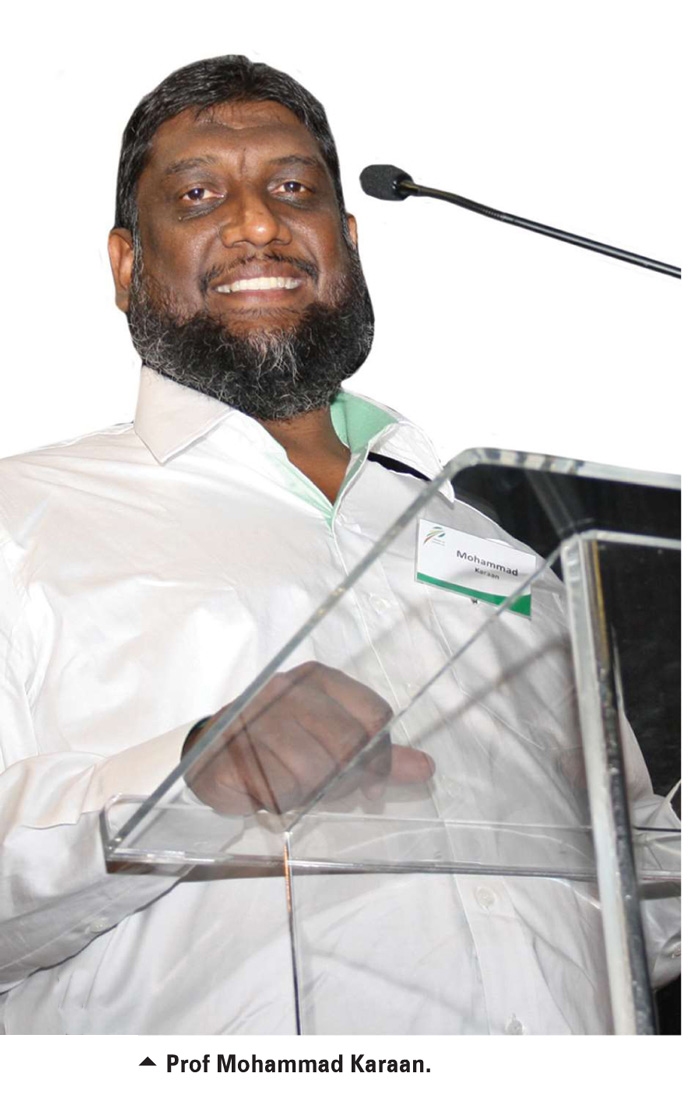 Prof Karaan says we are living in ambiguous times:
Prof Karaan says we are living in ambiguous times:
- We wanted growth and we wanted equity – but growth did not bring more equity.
- We wanted redistribution to be assisted by market-based land reform – it didn’t bring us that.
- We said we wanted justice and equity – we got justice but not equity.
- We wanted growth amidst uncertainty – but growth and uncertainty don’t go together.
- We want greater employment – but we also want higher wages.
All these ambiguities challenge the economic decisions that need to be made.
The National Development Plan (NDP) has three main priorities:
- Growth and economic transformation.
- Enhancing educational outcomes – focus on children.
- Improving capability of the State.
So agriculture must focus on:
- Land reform as proposed in the NDP, including ‘softer forms’ of expropriation.
- Water reform. Do more with less water.
- Education and incubation. Teach people to farm and apprentice them.
- Integrating state and markets.
- Revitalising agriculture in former homeland areas by addressing issues facing small-scale farmers to avoid poverty.
Prof Karaan acknowledged the role Grain SA is playing in this arena. Keep doing more – keep doing better. According to him fault lines in land reform are:
- We chose market-based land reform – but the market in itself is not equitable.
- We allowed people to take money in place of the land.
- We are scared of reforming communal ownership to encourage production and tenure security.
- You can’t have land transfer without adequate support systems.
- Land reform is susceptible to corruption and opportunism.
- The biggest criticism of land reform is the focus has been on land and not on people! It has to come back to people.
He said to remember that agriculture in South Africa:
- Employs people.
- Sustains rural towns.
- Is responsible for most of the economic growth.
- Has the necessary expertise.
- Is important for economic revitalisation.
- Has a sophisticated, organised agribusiness sector.
Prof Karaan believes our strength comes from our diversity. We have a choice of fight or flight, to resist or innovate. He likes the resolution taken by Congress to engage with government on the topic of land expropriation without compensation, but cautioned that we should prepare well and offer solutions at such engagements.

Publication: April 2018
Section: Review on Congress



